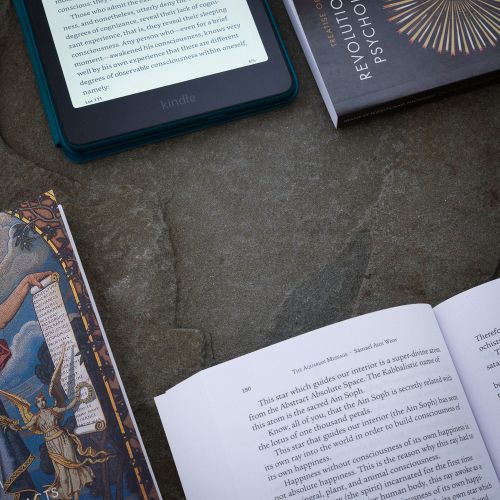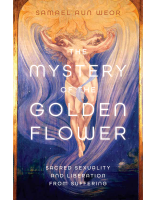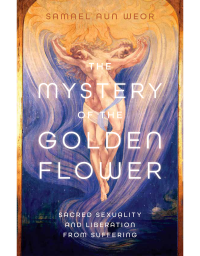We shall now present a dreadful case which clearly demonstrates how crooked and sinister the ego of jealousy can be during a husband and wife’s married life.
The horrible event occurred in 1180 in Provence. News of it spread all over until in 1250 it eventually became a literary work as something resembling an epic...
“Now it happened that William of Cabstaing came to the Court of my Lord Raymond of Roussillon, presented himself to him and begged, if it so pleased him, that he might be a page in his Court. My Lord Raymond, who saw that he was fair and of good grace, told him that he was welcome and that he might dwell at his Court. Thus William dwelt with him, and succeeded in bearing himself so gently that great and small loved him; and he succeeded in placing himself in so good a light that my Lord Raymond wished him to be page to my Lady Marguerite, his wife; and so it was. Then William set himself to merit yet more both in word and deed. But now, as is wont to happen in love, it happened that Love wished to take hold of my Lady Marguerite and to inflame her thoughts. So much did the person of William please her, both his word and his air, that one day she could not restrain herself from saying to him: ‘Now listen, William, if a woman showed you likelihood of love, tell me would you dare love her well?’ ‘Yes, that I would, madam, provided only that the likelihood were the truth.’ ‘By S. John,’ said the lady, ‘you have answered well, like a man of valour; but at present I wish to try you, whether you can understand and distinguish in matter of likelihood the difference between what is true and what is not.’
“When William heard these words he answered: ‘My lady, it is as it shall please you.’
“He began to be pensive, and at once Love sought war with him; and the thoughts that love mingled with his entered into the depth of his heart, and straightway he was of the servants of Love and began to ‘find’ little couplets, gracious and gay, and tunes for the dance and tunes with sweet words, by which he was well received, and the more so by reason of her for whom he sang. Now Love, that grants to his servants their reward, when he pleases, wished to grant William the price of his; and behold, he began to take hold of the lady with such keen thoughts and meditations on love that neither night nor day could she rest, thinking of the valour and prowess that had been so beautifully disposed and set in William.
“One day it happened that the lady took William and said to him: ‘William, come now, tell me, have you up to this hour taken note of our likelihood, whether it truly is or lies?’ William answered: ‘My lady, so help me God, from that moment onward that I have been your servant, no thought has been able to enter my heart but that you were the best woman that was ever born, and the truest in the world and the most likely. So I think, and shall think, all my life.’ And the lady answered: ‘William, I tell you that, if God help me, you shall never be deceived by me, and that what you think shall not prove vain or nothing.’ And she opened her arms and kissed him softly in the room where they two sat together, and they began their “druerie”;1 and straightway there wanted not those, whom God holds in wrath, who set themselves to talk and gossip of their love, by reason of the songs that William made, saying that he had set his love on my Lady Marguerite, and so indiscriminately did they talk that the matter came to the ears of my Lord Raymond. Then he was sorely pained and grievously sad, first that he must lose his familiar squire, whom he loved so well, and more still for his wife’s shame.
“One day it happened that William went out to hunt with his hawks and a single squire; and my Lord Raymond made enquiry where he was; and a groom answered him that he had gone out to hawk, and one who knew added that it was in such-and-such a spot. Immediately Raymond took arms, which he hid, and had his horse brought to him, and all alone took his way towards the spot whither William had gone: by dint of hard riding he found him. When William saw him approach he was greatly astonished, and at once evil thoughts came to him, and he advanced to meet him and said: ‘My lord, welcome. Why are you thus alone?’ My Lord Raymond answered: ‘William, because I have come to find you to enjoy myself with you. Have you caught anything?’—’I have caught nothing, my lord, because I have found nothing; and he who finds little will not catch much, as the saying goes.’—’Enough of this talk,’ said my Lord Raymond, ‘and by the faith you owe me, tell me the truth on all the questions that I may wish to ask.’—’By God, my lord,’ said William, ‘if there is ought to say, certainly to you shall I say it.’ Then said my Lord Raymond: ‘I wish for no subtleties here, but you must answer me in all fullness on everything that I shall ask you.’—’My lord, as it shall please you to ask,’ said William, ‘so shall I tell you the truth.’ And my Lord Raymond asked: ‘William, as you value God and the holy faith, have you a mistress for whom you sing and for whom Love constrains you?’ William answered: ‘My lord, and how else should I be singing, if Love did not urge me on? Know the truth, my lord, that Love has me wholly in his power.’ Raymond answered: ‘I can well believe it, for otherwise you could not sing so well; but I wish to know, if you please, who is your lady.’—’Ah, my lord, in God’s name,’ said William, ‘see what you ask me. You know too well that a man must not name his lady...
But Raymond kept on pressing him, because the ego of jealousy was devouring him alive, until William said:
“‘My lord, you must know that I love the sister of my Lady Marguerite, your wife, and that I believe I have exchange with her of love [answered the ego of deception]. Now that you know it, I beg you to come to my aid and at least not to prejudice me.’—’Take my word,’ said Raymond, ‘for I swear to you and engage myself to you that I will use all my power for you.’ And then he gave his word, and when he had given it to him Raymond said to him: ‘I wish us to go to her castle, for it is near by.’—’And I beg we may do so, in God’s name,’ said William. And so they took their road towards the castle of Liet. And when they came to the castle they were well received by En [Sir] Robert of Tarascon, who was the husband of my Lady Agnes, the sister of my Lady Marguerite, and by my Lady Agnes herself. And my Lord Raymond took my Lady Agnes by the hand and led her into her chamber, and they sat down on the bed. And my Lord Raymond said: ‘Now tell me, my sister-in-law, by the faith that you owe me, are you in love with Love?’ And she said: ‘Yes, my lord [with her deceitful ego].’—’And whose?’ said he. ‘Oh, that I do not tell you,’ answered she; ‘what means this parleying?’
“In the end, so insistently did he demand that she said that she loved William of Cabstaing; this she said because she saw William sad and pensive and she knew well that he loved her sister; and so she feared that Raymond might have had evil thoughts of William. Such a reply gave great joy to Raymond. Agnes related it all to her husband, and her husband answered her that she had done well and gave her his word that she was at liberty to do and say anything that could save William [the vile adulterer]. Agnes was not wanting to him. She called William all alone into her chamber, and remained so long with him that Raymond thought he must have had the pleasures of love with her; and all this pleased him, and he began to think that what he had been told of William was untrue and random talk. Agnes and William came out of her chamber, supper was prepared and they supped with great gaiety [such are the farces committed by the pluralized ego]. And after supper Agnes had the bed of her two neighbours prepared by the door of her chamber, and so well did the Lady and William act their parts that Raymond believed he was with her.
“And the next day they dined in the castle with great joy, and after dinner they set out with all the honours of a noble leave-taking, and came to Roussillon. And as soon as Raymond could, he separated from William and went away to his wife, and related to her all that he had seen of William and her sister, for which his wife was sorely grieved all night. And the next day she had William summoned to her and received him ill, and called him false friend and traitor. And William cried to her for pity, as a man who had done nought of that with which she charged him, and related to her all that had passed, word for word. And the lady sent for her sister and from her she learnt that William had done no wrong. And therefore she called him and bade him make a song by which he should show that he loved no woman but her, and then he made the song which says:—
“The sweet thoughts
That Love often gives me.
“And when Raymond of Roussillon heard the song that William had made for his wife, he made him come to speak with him some way from the castle, and cut off his head, which he put in a bag; he drew out the heart from the body and put it with the head. He went back to the castle; he had the heart roasted and brought to his wife at table and made her eat it without her knowing. When she had eaten it, Raymond rose up and told his wife that what she had just eaten was the heart of Lord William of Cabstaing, and showed her his head and asked her if the heart had been good to eat. And she heard what he said, and saw and recognised the head of Lord William. She answered him and said that the heart had been so good and savoury, that never other meat or other drink could take away from her mouth the taste that the heart of Lord William had left there. And [enraged with anger, made desperate by the ego of jealousy] Raymond ran at her [the perverse adulteress] with a sword. She took to flight, threw herself down from a balcony and broke her head.” —Stendhal, On Love
This was the catastrophic end to a fatal triangle wherein the egos of jealousy, adultery, deceit, farce, etc. impelled their actors up a blind alley.
Bless my soul and Holy Mary! Both divine beings and humans know well that the powerful Lord Raymond of Roussillon became a murderer because of the demon of jealousy. It would have been better to serve his wife divorce papers.







